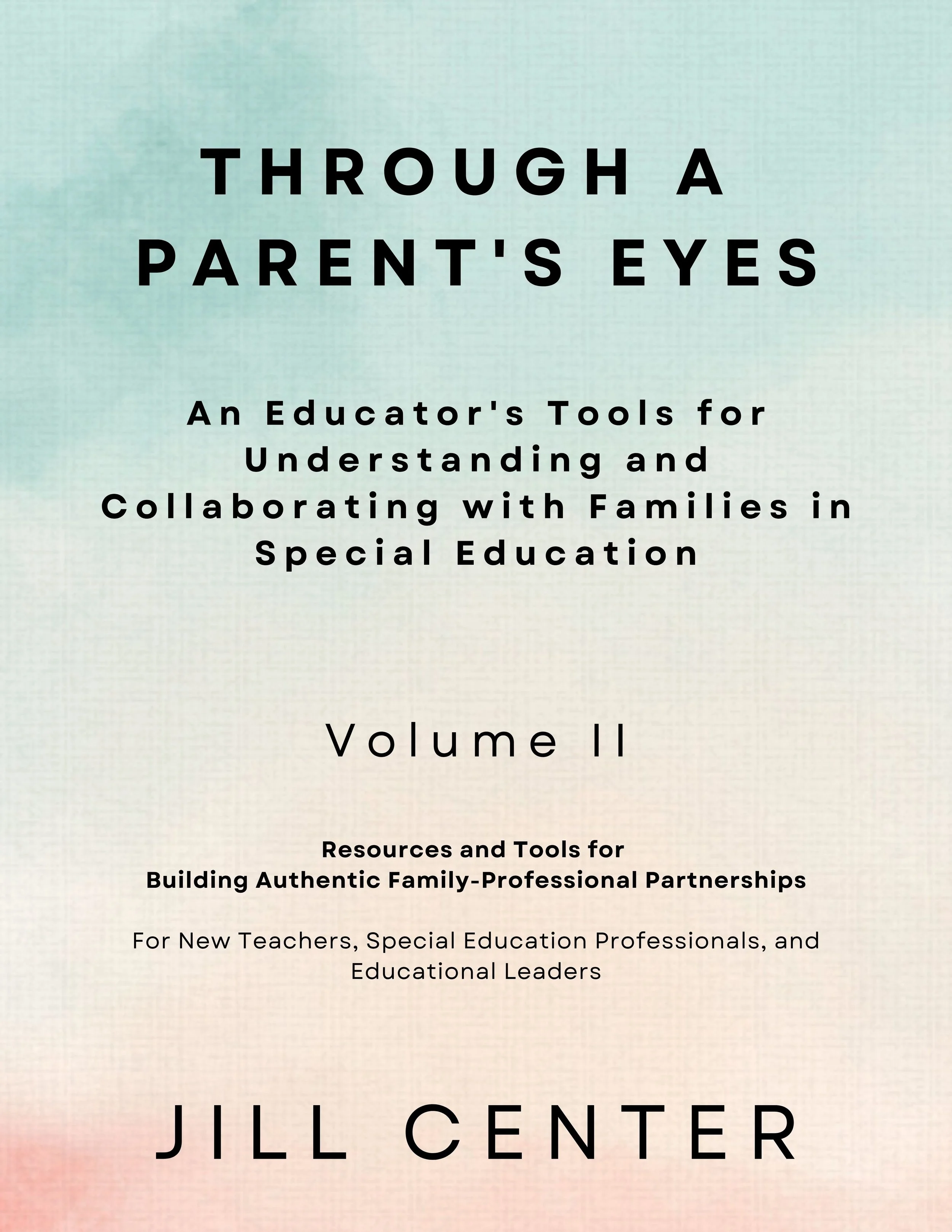
Through a parent’s eyes
A two volume series for educators
Every day, educators across the country make decisions that profoundly impact not just students with disabilities, but entire families. Yet despite the critical importance of family-professional partnerships in special education, many educators enter the field with minimal preparation for the complex, nuanced work of collaborating authentically with families, in relation to their extensive training in curriculum, assessment, and legal compliance.
This book was born from a simple but powerful recognition: to serve students with disabilities effectively, we must first understand and honor the perspectives of their families. When we can truly see "through a parent's eyes," we unlock possibilities for effective collaboration that transform not only educational outcomes, but relationships, trust, and hope.
This handbook takes a fundamentally different approach to special education collaboration. Rather than starting with compliance requirements or professional perspectives, we begin with family experiences, concerns, and hopes. We then build outward from that foundation, integrating legal knowledge, evidence-based practices, and practical strategies within a framework that honors the family voice.
The book is grounded in several core principles:
Family-Centered Perspective: Every strategy, tool, and recommendation is evaluated first through the lens of family experience and needs.
Cultural Responsiveness: We recognize that effective collaboration requires understanding and adapting to diverse family cultures, values, and communication styles.
Universal Design for Learning: Just as UDL principles create more accessible learning environments for students, they can transform how we engage with families, providing multiple pathways for participation and communication.
Evidence-Based Practice: All recommendations are grounded in current research, with particular attention to studies that include family perspectives and outcomes.
Practical Implementation: While research-based, this book prioritizes immediately usable tools, templates, and strategies that can be implemented in real-world educational settings.
Professional Growth: We view family collaboration as an advanced professional skill that requires ongoing development, reflection, and refinement.
This handbook is designed for educators at all stages of their careers who work with students with disabilities and their families. Whether you are a new teacher just beginning to navigate IEP meetings, a general education teacher hoping to gain a more thoughtful understanding of implementation, an experienced special educator looking to deepen your collaboration skills, or an administrator seeking to build systemic change, you will find practical, evidence-based guidance.
In Volume I, Explore the theories and evidence based research that supports collaborative model of family-professional relationships
In Volume II, Have access to the case studies and tools you can use to implement the ideas in Volume I

